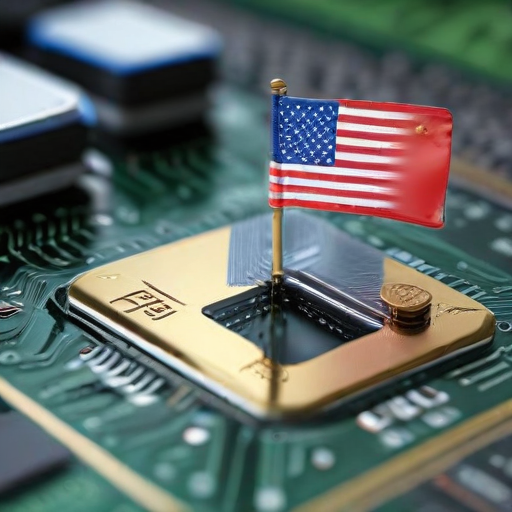As the United States considers imposing stricter trade restrictions to prevent advanced semiconductor technology from reaching China, Nvidia, a leading U.S.-based chip manufacturer, is reportedly developing a new version of its artificial intelligence chips to adhere to these upcoming regulations.
According to reports, Nvidia is collaborating with Chinese distributor Inspur to offer a chip tentatively named the “B20” which is designed specifically for the Chinese market. Initial shipments of the B20 are expected to commence in the second quarter of 2025, although Nvidia has chosen not to comment publicly on this development.
Nvidia currently has three types of chips that comply with U.S. export controls, one of which is the H20, a product that has seen price reductions due to competition with domestic rival Huawei. Interestingly, sales of the H20 have begun to rebound, with estimates suggesting that Nvidia will sell over one million of these chips in China this year, generating around $12 billion in revenue, despite the ongoing trade restrictions. Notably, this projection nearly doubles Huawei’s anticipated sales for its Ascend 910B chip.
However, analysts from Jefferies have noted that the H20 chips may soon face additional risks due to the U.S. government’s annual review of semiconductor export rules scheduled for October. They anticipate that the H20 may be prohibited for sale to China, potentially through various methods, including specific product bans or adjustments to computing and memory capacity limits.
Moreover, there is a possibility that these U.S. export controls could extend to semiconductor sales in neighboring countries like Malaysia, Indonesia, and Thailand, or even target Chinese firms operating internationally, although the latter would present implementation challenges.
In summary, Nvidia is navigating a complex landscape of evolving regulations and competition, showcasing resilience by adapting its product offerings for different markets. This adaptation may highlight a willingness to innovate under challenging circumstances, potentially benefiting Nvidia in the long run. As the global chip market continues to evolve, there is hope that continued advancements in technology will lead to new opportunities for collaboration and growth, irrespective of restrictions.
